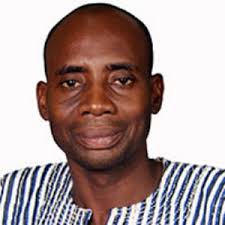
In the heart of Ghana’s Northern Region lies the Walewale Constituency, a region that has witnessed significant political and developmental strides, thanks in part to the leadership of Dr. Sagre Bambangi. Born on May 2, 1966, in Wungu, Dr. Bambangi has carved a niche for himself as a dedicated public servant, educator, and advocate for sustainable agricultural practices.
Early Life and Education
Dr. Bambangi’s journey began in Wungu, where he completed his secondary education at Navrongo Senior High School. His academic pursuits led him to the University of Ghana, where he earned both his Bachelor of Arts and Master of Philosophy degrees. Furthering his commitment to education and research, he obtained a Doctor of Philosophy in Agricultural Economics in 2009. His academic tenure at the University for Development Studies spanned from 1997 to 2016, where he imparted knowledge and mentored future leaders in the field of economics.
Political Career
Dr. Bambangi’s foray into politics was marked by his election as the Member of Parliament for the Walewale Constituency in 2012. Representing the New Patriotic Party (NPP), he secured a seat in the 6th Parliament of the 4th Republic of Ghana. His re-election in 2016 affirmed his constituents’ trust in his leadership, allowing him to serve in the 7th Parliament. Throughout his tenure, Dr. Bambangi has been a staunch advocate for the development of the Northern Region, focusing on infrastructure, education, and healthcare improvements.
Advocacy for Agricultural Development
Beyond his legislative duties, Dr. Bambangi has been a vocal proponent of sustainable agricultural practices. As Ghana’s Deputy Minister for Food and Agriculture, he emphasized the importance of balancing traditional farming methods with modern agricultural techniques. In 2020, he cautioned against the exclusive adoption of agroecology, highlighting potential risks to food security. He argued that while agroecology is beneficial, relying solely on it could jeopardize the continent’s ability to feed its growing population. Dr. Bambangi advocated for a diversified approach, integrating various agricultural methods to ensure food security and economic stability.
Personal Life and Values
A devout Muslim, Dr. Bambangi’s faith plays a central role in his life and decision-making processes. He is married and a father of six, embodying values of family, community, and service. His personal and professional lives are deeply intertwined, reflecting a commitment to both his immediate family and the broader Ghanaian society.
Challenges and Criticisms
Despite his contributions, Dr. Bambangi’s tenure has not been without challenges. In 2019, a concerned citizen penned an open letter addressing issues within the Walewale Constituency, particularly the deteriorating state of the municipal library. The letter highlighted concerns over inadequate resources, broken facilities, and the need for urgent attention to educational infrastructure. Such feedback underscores the ongoing need for responsive leadership and accountability in addressing constituents’ concerns.
Legacy and Future Outlook
Dr. Sagre Bambangi’s legacy is characterized by his unwavering dedication to the development of the Northern Region and Ghana at large. His blend of academic expertise, political acumen, and commitment to sustainable development positions him as a pivotal figure in Ghana’s contemporary political landscape. As the nation continues to navigate challenges and opportunities, leaders like Dr. Bambangi exemplify the impact of informed, compassionate, and forward-thinking leadership.
Frequently Asked Questions (FAQs)
1. Who is Sagre Bambangi?
Dr. Sagre Bambangi is a Ghanaian politician, educator, and agricultural economist. He has served as the Member of Parliament for the Walewale Constituency and held the position of Deputy Minister for Food and Agriculture.
2. What is Dr. Bambangi’s educational background?
Dr. Bambangi completed his secondary education at Navrongo Senior High School. He earned his Bachelor of Arts and Master of Philosophy degrees from the University of Ghana and obtained a Doctor of Philosophy in Agricultural Economics in 2009.
3. Which political party does Dr. Bambangi represent?
Dr. Bambangi is a member of the New Patriotic Party (NPP), a major political party in Ghana.
4. What are Dr. Bambangi’s contributions to agriculture?
As Deputy Minister for Food and Agriculture, Dr. Bambangi advocated for a balanced approach to agricultural practices, emphasizing the integration of traditional and modern methods to ensure food security.
5. Has Dr. Bambangi faced any criticisms during his tenure?
Yes, in 2019, a concerned citizen addressed issues within the Walewale Constituency, particularly the deteriorating state of the municipal library, highlighting the need for improved educational infrastructure.
6. What is Dr. Bambangi’s stance on agroecology?
Dr. Bambangi supports agroecology as a sustainable farming method but cautions against relying solely on it, emphasizing the need for a diversified approach to meet the growing food demands.
7. How has Dr. Bambangi contributed to education?
Dr. Bambangi served as a lecturer at the University for Development Studies from 1997 to 2016, imparting knowledge in economics and mentoring future leaders.
8. What is Dr. Bambangi’s personal life like?
Dr. Bambangi is a devout Muslim, married with six children. His faith and family values play a central role in his life and leadership approach.
9. What challenges has Dr. Bambangi faced in his constituency?
Dr. Bambangi has faced challenges such as concerns over the state of educational facilities, including the municipal library in Walewale, which required attention and improvement.
10. What is Dr. Bambangi’s legacy?
Dr. Bambangi’s legacy is characterized by his dedication to the development of the Northern Region, his advocacy for sustainable agriculture, and his commitment to education and public service.